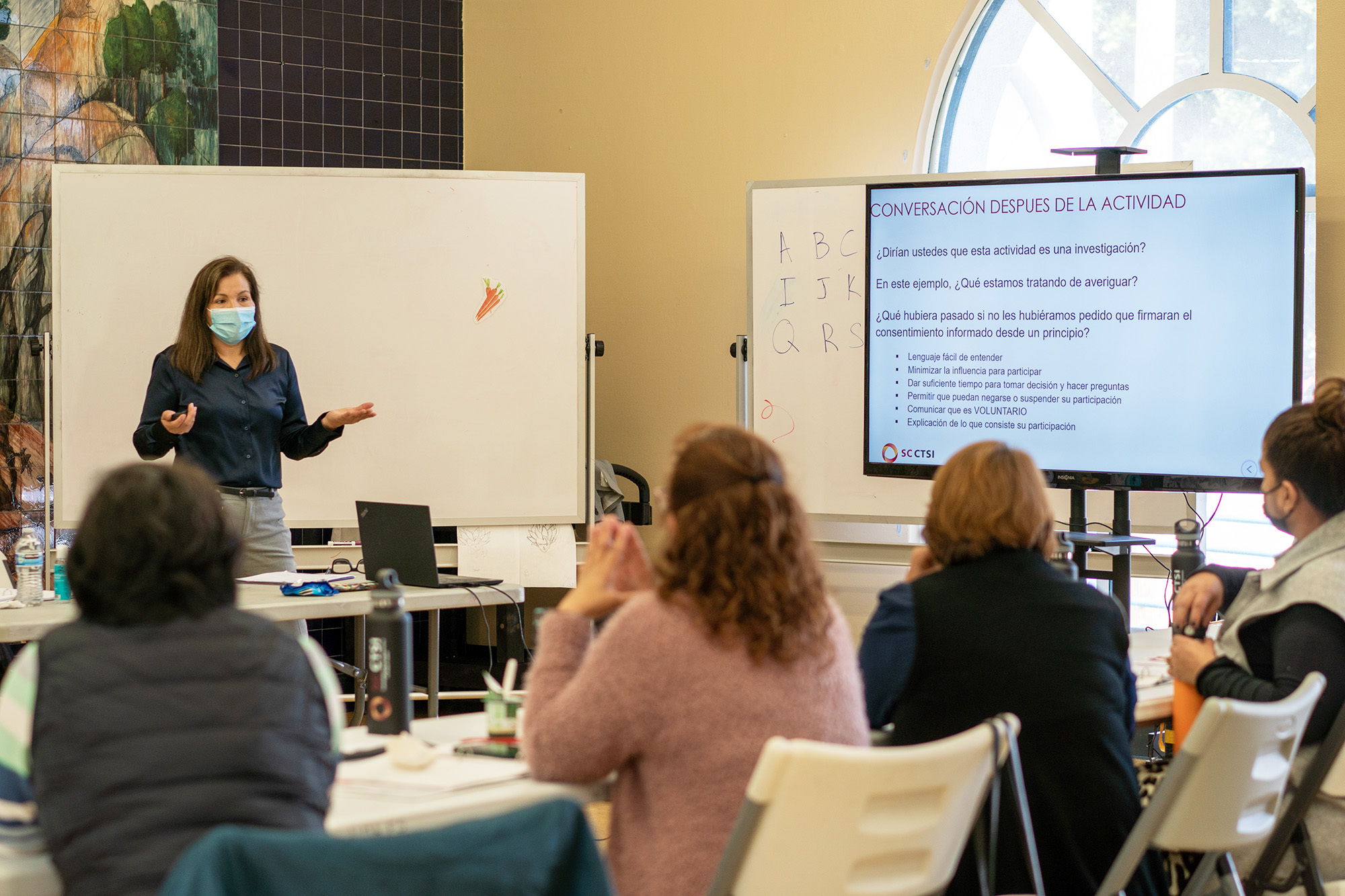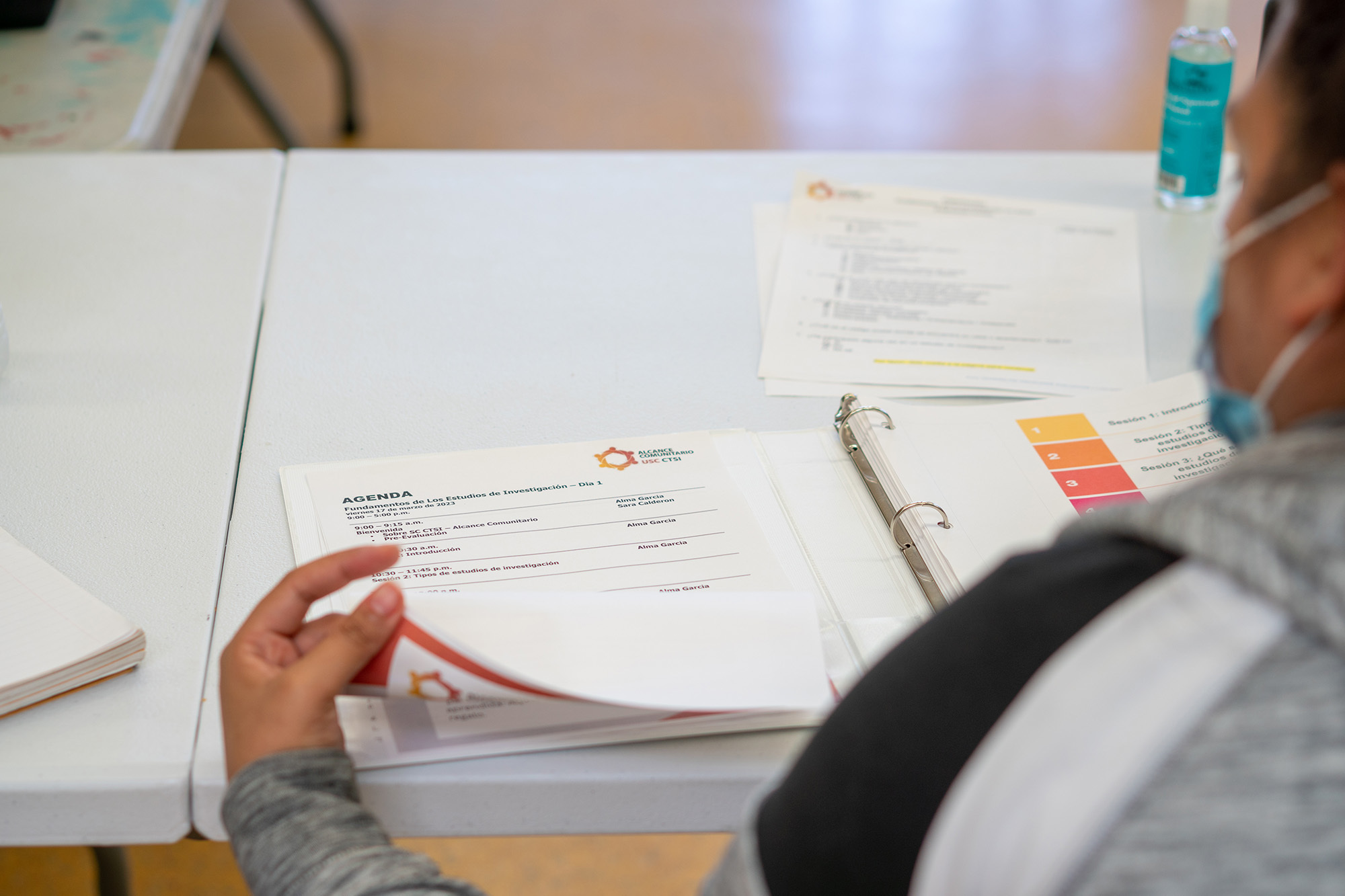March 21, 2023
Alma Garcia, Community Outreach Coordinator of the Community Engagement core group at SC CTSI, presenting the R101: The Fundamentals of Research training to promotoras at Alma Family Services on Friday, March 17. (Photo by Andrea Diaz)
"Research 101: The Fundamentals of Research" is a training that was developed by the Community Engagement (CE) core group at the Southern California Clinical and Translational Science Institute (SC CTSI) in 2016.
The "Fundamentals of Research" promotor training manual was developed as part of the Southern California Community Engagement Consortium, comprised of Clinical and Translational Science Awards (CTSA) hubs at the University of California Los Angeles (UCLA), the University of California, San Diego (UCSD), Scripps Health, the University of Southern California (USC), and Providence Health and Services.
CE has taken a community-driven approach to develop an intervention that can be delivered by promotores or community health workers in community settings to address the lack of participation in research among the Latino community. The curriculum is designed to train promotores to increase community knowledge, appreciation, and advocacy for research.
It was not the intent of CE to reinvent the wheel or replace any of the resources and information that already exist locally, statewide, and nationally. The information compiled in CE's manual was taken directly from the references listed in the original manual. The curriculum was modified from UCSD's Clinical & Translational Research Institute, Research Fundamentals Workshop Series, and informed by promotor and promotor program coordinators, focus groups, and interviews in Los Angeles and San Diego, California. In addition, drafts of the manual were reviewed by promotores, Institutional Review Board (IRB) directors, and faculty at USC, UCLA, and Scripps Health.
The lessons build upon one another sequentially to ensure that each promotor will achieve the learning objectives.

The training manual is comprised of five lessons:
1) Introduction/Objectives
2) What is Research
3) Types of Research
4) Research Process
5) Research Participant Protection
Why research? Why promotores?
Despite efforts to increase the representation of minority populations in research, there continues to exist a disproportionate amount of Whites as research participants than any other racial or ethnic group. The lack of participation of minorities in research ultimately hurts them. Treatments and personalized medicine call for the participation of people of all genders, ages, races, and ethnicities, and lack of it will prevent us from correcting disparities. The challenge lies in developing community-partnered approaches that are both culturally relevant and can be rigorously evaluated and ultimately broadly implemented for widespread adoption.
Others have found that promotores or community health workers -- individuals who have close ties to the communities in which they serve -- can be effective partners in research when evaluating health interventions. Through their close relationships in their communities, promotores have built trusting relationships, something invaluable for public health research and promotion. Promotores are Latino community health workers who are defined as highly trained community leaders and are characterized by servicio del corazon –- or service from the heart. Promotores have been a part of a variety of health promotion programs in the United States and have been successful in changing community knowledge and behaviors around different health issues.